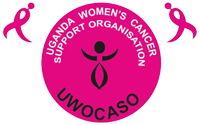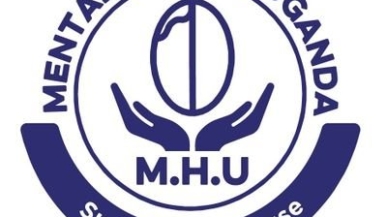Call for proposal
Mentally Mindful!
V-21197-UG-IL
-
Grant amount
50000 - 200000Project Duration
12 - 18 MonthsClosing date
31 May 2022 -
-
-
Grants
Voice in Uganda is looking for inclusive and bold ideas around innovative integration of mental health into program, policy and practice.
The many restrictions imposed to slow down the spread of the corona virus in Uganda – physical distancing, lockdowns, closure of “non-essential” businesses, travel restrictions – also led to increased levels of stress, anxiety and depression.
Do you want to try something new and innovative to support rightsholders in your community deal with mental health? Have you tested a new approach but have not had time or resources to document, reflect and learn the long-lasting effects of the pandemic on vulnerable populations? Are you concerned over the extent to which mental health has been deprioritized in policy and practice?
If you said yes to any of the questions above, then apply for an Innovate and Learn Grant. This grant is meant for groups, organisations, networks, consortia, start-ups, and social enterprises who wish to lean from innovation, and/or to test and scale new approaches. Voice focuses less on technology but prefers human-centred innovations that are context-specific and relevant to empowering, amplifying and/or influencing the voice of the target groups.
Funding available is between Euros 50,000-200,000 and the duration of the projects under this grant should be for a period between 12-18 months.
What are we looking for?
Specifically, Voice is looking for projects or ideas that test innovative approaches around mental health of rightsholder groups and an intersection between mental health, trauma, vulnerability and navigating the effects of COVID 19.
This Call for Proposals is intended for projects that focus on Voice defined themes and rightholder groups.
- The elderly/senior citizens and/or young people;
- Indigenous groups and ethnic minorities;
- Lesbian, gay, bisexual, transgender, queer, intersex people;
- Persons with disabilities;
- Women facing exploitation, abuse, and/or violence
Voice recognises the importance of initiatives that respond to groups facing multiple layers of exclusion that cut across more than one rightsholders group. Therefore, a strong preference will be given to projects that intend to work with more than one target group to address overlapping or multiple vulnerabilities. Ideas that clearly highlight its intersectionality will definitely have an edge!
Voice believes that intersectionality is helpful for the rightsholders to understand the complexity of their own realities and how they are interconnected. We also believe intersectionality can help rightsholders not only to become aware of how completely different groups in their same context/environment share similarities in the way they experience social exclusion, but also it can lead them into identifying ways in which they can come together and act to change those realities on their own (and without the intervention of development organizations or the policies).
All projects should also focus on at least one or all of the following impact themes:
- Improved access to (productive) resources such as land, extractives and employment,
- Improved access to social services, particularly health and education, and
- Fostering space for political participation and citizen engagement
Who can apply?
Innovate and Learn Grants are open to, locally registered non-profit organisations, networks, consortium, and coalitions with locally registered non-profit organisations as the lead applicant
Applicants that are rightsholder-led will be prioritised. An organisation is rightsholder-led when it is governed and managed by members of the rightsholder-group(s). The principle of “Nothing About Us Without Us” guides their work. If the rightsholders do not play roles in the governance and management of the organisation, the proposal needs to describe how the rightsholder groups can be fully involved in the conceptualisation, implementation, monitoring, and evaluation of the project.
Geographical coverage
Applications will be accepted from ONLY locally registered not-for-profit local organisations working in the following districts: Gulu, Amuru, Nwoya, Omoro, Lira, Oyam, Kole, Masindi, Hoima, Kyegegwa, Ntoroko, Kyenjojo, Kabarole, Lyantonde, Mbarara, Sheema, Wakiso, Mubende, Mityana, Masaka, Mpigi, Kayunga, Mbale, Pallisa, Iganga, Bugiri, Kamuli, Jinja, Butaleja, Kaliro, Mayuge. Applicants registered outside these areas are nevertheless eligible to apply as far as they have a project base/office in the selected areas and can provide the intervention there without undue travel cost on Voice.
What we won’t fund:
- Organisations with an annual turnover of over €2 million.
- Funding of commercial services, investment or other commercial activities.
Practicing the Values of Voice
Voice believes in the principle of Nothing About Us Without Us. In practice, this means Voice rightsholder groups need to be at the centre of any effort. They must be involved in the conceptualisation, planning, and implementation of any grant. They are equal partners in any consortium, network, or coalition, playing key governance and leadership roles.
Linking and Learning
Linking and Learning is at the heart and soul of Voice. All grantees are expected to participate in facilitated meetings and gatherings enabling the exchange of ideas and learnings from each other’s experiences. Applicants must demonstrate in their proposals how they will identify, document, and share their learnings as they implement their project. These may come in many forms such as blog posts, videos, photo essay or audio recordings.
Voice values diversity and inclusion. All grantees are expected to be able to interact with and learn from a diverse group of people coming from different backgrounds, orientations, and experiences. Interested applicants must be willing to work in a diverse community, which includes representatives from all of the Voice rightsholder groups.
From the numerous applications received the following grantees have been successful as part of this Call for Proposals. If you like to join Voice please see the current list of open Calls for Proposals Uganda
Uganda![Strengthening Community Participation through Engagement (SCOPE)]()
Strengthening Community Participation through Engagement (SCOPE)
Hope Alert Network for Development and Local Empowerment (HANDLE)-
About
Voice in Uganda is looking for inclusive and bold ideas around innovative integration of mental health into program, policy and practice.
The many restrictions imposed to slow down the spread of the corona virus in Uganda – physical distancing, lockdowns, closure of “non-essential” businesses, travel restrictions – also led to increased levels of stress, anxiety and depression.
Do you want to try something new and innovative to support rightsholders in your community deal with mental health? Have you tested a new approach but have not had time or resources to document, reflect and learn the long-lasting effects of the pandemic on vulnerable populations? Are you concerned over the extent to which mental health has been deprioritized in policy and practice?
If you said yes to any of the questions above, then apply for an Innovate and Learn Grant. This grant is meant for groups, organisations, networks, consortia, start-ups, and social enterprises who wish to lean from innovation, and/or to test and scale new approaches. Voice focuses less on technology but prefers human-centred innovations that are context-specific and relevant to empowering, amplifying and/or influencing the voice of the target groups.
Funding available is between Euros 50,000-200,000 and the duration of the projects under this grant should be for a period between 12-18 months.
What are we looking for?
Specifically, Voice is looking for projects or ideas that test innovative approaches around mental health of rightsholder groups and an intersection between mental health, trauma, vulnerability and navigating the effects of COVID 19.
This Call for Proposals is intended for projects that focus on Voice defined themes and rightholder groups.
- The elderly/senior citizens and/or young people;
- Indigenous groups and ethnic minorities;
- Lesbian, gay, bisexual, transgender, queer, intersex people;
- Persons with disabilities;
- Women facing exploitation, abuse, and/or violence
Voice recognises the importance of initiatives that respond to groups facing multiple layers of exclusion that cut across more than one rightsholders group. Therefore, a strong preference will be given to projects that intend to work with more than one target group to address overlapping or multiple vulnerabilities. Ideas that clearly highlight its intersectionality will definitely have an edge!
Voice believes that intersectionality is helpful for the rightsholders to understand the complexity of their own realities and how they are interconnected. We also believe intersectionality can help rightsholders not only to become aware of how completely different groups in their same context/environment share similarities in the way they experience social exclusion, but also it can lead them into identifying ways in which they can come together and act to change those realities on their own (and without the intervention of development organizations or the policies).
All projects should also focus on at least one or all of the following impact themes:
- Improved access to (productive) resources such as land, extractives and employment,
- Improved access to social services, particularly health and education, and
- Fostering space for political participation and citizen engagement
Who can apply?
Innovate and Learn Grants are open to, locally registered non-profit organisations, networks, consortium, and coalitions with locally registered non-profit organisations as the lead applicant
Applicants that are rightsholder-led will be prioritised. An organisation is rightsholder-led when it is governed and managed by members of the rightsholder-group(s). The principle of “Nothing About Us Without Us” guides their work. If the rightsholders do not play roles in the governance and management of the organisation, the proposal needs to describe how the rightsholder groups can be fully involved in the conceptualisation, implementation, monitoring, and evaluation of the project.
Geographical coverage
Applications will be accepted from ONLY locally registered not-for-profit local organisations working in the following districts: Gulu, Amuru, Nwoya, Omoro, Lira, Oyam, Kole, Masindi, Hoima, Kyegegwa, Ntoroko, Kyenjojo, Kabarole, Lyantonde, Mbarara, Sheema, Wakiso, Mubende, Mityana, Masaka, Mpigi, Kayunga, Mbale, Pallisa, Iganga, Bugiri, Kamuli, Jinja, Butaleja, Kaliro, Mayuge. Applicants registered outside these areas are nevertheless eligible to apply as far as they have a project base/office in the selected areas and can provide the intervention there without undue travel cost on Voice.
What we won’t fund:
- Organisations with an annual turnover of over €2 million.
- Funding of commercial services, investment or other commercial activities.
Practicing the Values of Voice
Voice believes in the principle of Nothing About Us Without Us. In practice, this means Voice rightsholder groups need to be at the centre of any effort. They must be involved in the conceptualisation, planning, and implementation of any grant. They are equal partners in any consortium, network, or coalition, playing key governance and leadership roles.
Linking and Learning
Linking and Learning is at the heart and soul of Voice. All grantees are expected to participate in facilitated meetings and gatherings enabling the exchange of ideas and learnings from each other’s experiences. Applicants must demonstrate in their proposals how they will identify, document, and share their learnings as they implement their project. These may come in many forms such as blog posts, videos, photo essay or audio recordings.
Voice values diversity and inclusion. All grantees are expected to be able to interact with and learn from a diverse group of people coming from different backgrounds, orientations, and experiences. Interested applicants must be willing to work in a diverse community, which includes representatives from all of the Voice rightsholder groups.
-
How to apply?
-
-
From the numerous applications received the following grantees have been successful as part of this Call for Proposals. If you like to join Voice please see the current list of open Calls for Proposals

-
Uganda
![Strengthening Community Participation through Engagement (SCOPE)]()
Strengthening Community Participation through Engagement (SCOPE)
Hope Alert Network for Development and Local Empowerment (HANDLE)
-




